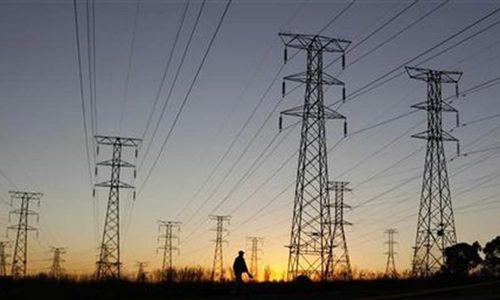ISLAMABAD: Oil marketing companies (OMCs) have asked the government to provide a deregulated and fair environment to all arms of the petroleum sector through an all-encompassing petroleum policy 2021 to address existing challenges like repeated shortages, reduce foreign exchange loss through rationalised imports and provide investment opportunities to all instead of working on just refining policy in isolation.
“It must be realised that oil marketing, storage, transportation and refining are four wheels of the same vehicle that must work in tandem to ensure petroleum supplies to the Pakistani consumer as well as to the armed forces. An impact on any one of them has a direct impact on the other three,” said the Oil Marketing Association of Pakistan (OMAP).
In a letter to chairman of the Cabinet Committee on Energy (CCoE) and Minister for Planning and Development Asad Umar, OMAP Chief Executive Officer Dr Ilyas Fazil pointed out that since a draft refinery policy currently pending CCoE’s approval would also impact the oil marketing, storage and transportation sectors, it was necessary that all the four stakeholders be consulted for a policy revision instead of just refineries.
Advisory council complains existing policy ignores downstream oil sector
Dr Fazil, who is a former member of the Oil and Gas Regulatory Authority and headed the Oil Companies Advisory Council (OCAC) for years, said the downstream oil sector was defined under Pakistan Oil (Refining, Blending, Transportation, Storage and Marketing) Rules 2016, amended in 2018, and yet the government appeared to be focused on the refining sector when it came to revision in downstream petroleum policy.
“The major chunk of the downstream sector is being totally ignored and is still subjected to the outdated 1997 Petroleum Policy,” said the OMAP, a representative body of a number of OMCs. It added that in the ensuing decade and a half, the downstream sector had undergone a sea change in its dynamics.
While in 1997 there were five refineries and are still five, the story of oil marketing is a real eye-opener as the number of OMCs increased from three to 66 at present, including 35 OMCs with licences to market oil products and 31 others in various stages of licensing.
Also, Pakistan currently imported 70 per cent of its petrol needs and 50pc of high speed diesel (HSD) requirement and the balance is catered for by five refineries. Last year, Pakistan imported around 8.1 million tonnes of refined petroleum products in addition to 6.8m tonnes of crude oil and spent $6.7 billion during July-March 2021 on oil imports as reported by the central bank.
The OMAP argued that half of foreign exchange went for refined products which are imported by OMCs while petroleum oil liquids (POL) supply chain started from the imports at ports, the storage at ports, the pipeline transportation network at ports, the cross-country white oil pipeline (WOP) from Karachi to Mahmoodkot and Mahmoodkot-Faisalabad-Machhike, the oil storage installations, and depots and retail outlets of OMCs.
“In terms of sheer volume of investment as well as tonnage, the oil marketing sector (storage, transportation and retail) far outweighs that of the refining sector,” wrote Dr Fazil.
He said the refineries had an important role to ensure continuous production at oil and gas wells at home but it was the remaining segments of the downstream sector that were more if not equally responsible for addressing the challenges the country faced. For example, the product quality in Pakistan had improved from 87 Ron (non-Euro standard) to Euro-V standard now for which the OMCs played the key role, but some refineries are still struggling to match the country’s specification.
The OMAP chief informed the CCOE chairman that spearheaded by the planning and development ministry, a draft downstream petroleum policy was finalised in 2017 with all stakeholders on board. The draft targeted private sector investment and addressed the short-, medium- and long-term actions needed to overcome the challenges with timelines.
It offered a road map to use fullest use of the existing assets, strengthening the regulatory framework to ensure the emergence of a truly competitive market structure while providing investors with greater legal certainty and more regulatory oversight and arbitration and envisaged clear timelines for deregulation and product specification improvements. However, strangely the focus has now shifted towards refining alone.
The OMAP demanded a phased approach as done globally to allow a minimum needed time to the refineries and OMCs to calibrate their systems to move to the next level from the current one. There should be policy guidelines and framework to be in place for energy mix on a long-term horizon to enable strategic capital investment for appropriate energy sourcing.
“Till deregulation, revision of OMC’s margins should be done annually and automatically based on inflation and there should be no ban on retail outlet development,” the OMAP said, adding that a level-playing field should be available to all players and established players should not be penalised with different yardsticks for retail or storage development parameters. It demanded an anti-adulteration law for strict quality control and that the policy framework should be consistent and ratified by parliament for 15 years.
Published in Dawn, August 23rd, 2021















































Dear visitor, the comments section is undergoing an overhaul and will return soon.